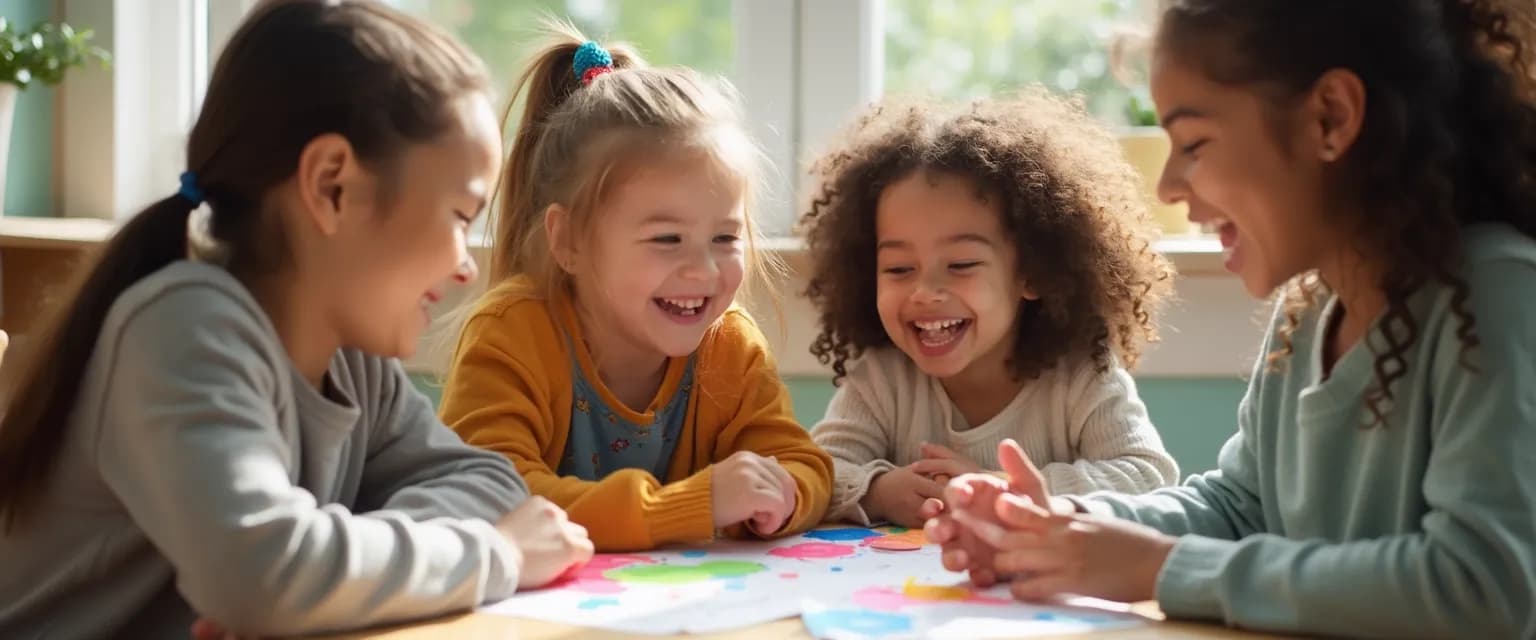5 Powerful Emotional EQ Exercises for Children: Building Future Leaders
Nurturing emotional EQ in children isn't just about helping them manage feelings—it's about equipping them with essential life skills that shape tomorrow's leaders. Emotional EQ (emotional intelligence quotient) encompasses recognizing, understanding, and effectively managing emotions in oneself and others. When children develop strong emotional EQ early, they gain a significant advantage in both personal relationships and future professional endeavors.
What makes emotional EQ particularly powerful is how it forms the foundation for critical leadership qualities: empathy, resilience, communication, and decision-making. These aren't just nice-to-have skills—they're the bedrock of successful leadership. Research consistently shows that leaders with high emotional intelligence capabilities outperform those who excel solely in technical skills.
The good news? Emotional EQ isn't fixed—it's highly trainable, especially during childhood when neural pathways are most malleable. The following five exercises transform abstract emotional concepts into engaging, age-appropriate activities that children actually enjoy. Let's explore how these emotional EQ building blocks create future leaders who navigate life's complexities with confidence.
5 Fun Emotional EQ Exercises That Transform Children Into Leaders
1. The Feelings Detective
This emotional EQ game turns children into emotion investigators, sharpening their ability to identify feelings in themselves and others. Have children examine pictures in books or magazines and identify the emotions displayed. For younger children (5-7), focus on basic emotions like happy, sad, angry, and scared. Older children (8-12) can explore more nuanced feelings like disappointed, anxious, or proud.
Why it builds leaders: Leaders who accurately read emotional cues make better decisions and connect more effectively with team members.
2. Empathy Explorer
This role-playing exercise develops perspective-taking abilities essential for emotional EQ mastery. Create scenarios where children step into someone else's shoes. For example, "How would you feel if you were the new kid at school?" or "What might your friend be feeling when they don't get picked for the team?" Have children act out appropriate responses.
Why it builds leaders: Empathetic leaders inspire loyalty, resolve conflicts effectively, and create inclusive environments where everyone feels valued.
3. Emotion Thermometer
This visual tool helps children measure and communicate their emotional intensity. Create a simple thermometer drawing with numbers 1-10. Teach children to identify where their feelings register—a mild annoyance might be a 3, while intense anger might reach 8 or 9. This emotional awareness technique helps children recognize escalating emotions before they become overwhelming.
Why it builds leaders: Self-awareness is the cornerstone of emotional EQ and effective leadership. Leaders who monitor their emotional states make better decisions under pressure.
4. Calm-Down Corner
Create a dedicated space with soft pillows, fidget toys, and calming visuals where children can practice emotional regulation. Teach simple breathing techniques like "five-finger breathing" (tracing each finger while breathing in and out) that children can use when emotions run high.
Why it builds leaders: Leaders who regulate their emotions effectively maintain composure during challenges and model emotional stability for others.
5. Gratitude Circle
This simple yet powerful emotional EQ practice involves gathering in a circle and sharing something you're thankful for. Even young children can participate by naming simple joys like "my teddy bear" or "playing outside." Older children can explore deeper appreciation like "having a friend who listened when I was sad."
Why it builds leaders: Gratitude enhances emotional resilience and positive outlook—qualities that distinguish exceptional leaders from average ones.
Implementing Emotional EQ Exercises in Daily Life
The real magic of emotional EQ development happens when these exercises become integrated into everyday routines rather than isolated activities. Look for natural opportunities to reinforce emotional intelligence: during bedtime routines, car rides, meal times, or after conflicts arise.
Consistency matters more than perfection. Even five minutes of emotional EQ practice daily yields better results than occasional hour-long sessions. When children experience small wins in emotional management, celebrate these victories to reinforce progress.
As children grow, their emotional EQ exercises should evolve too. For instance, the basic Feelings Detective game can transform into more sophisticated discussions about emotional nuances in literature or current events for older children. The key is maintaining engagement through age-appropriate challenges.
Remember that emotional EQ development isn't a linear process. Children will have good and challenging days. What matters is creating a supportive environment where emotional intelligence is valued and practiced consistently. By investing in these emotional EQ exercises today, you're nurturing the empathetic, resilient, and emotionally intelligent leaders of tomorrow—leaders equipped to navigate an increasingly complex world with wisdom and heart.




